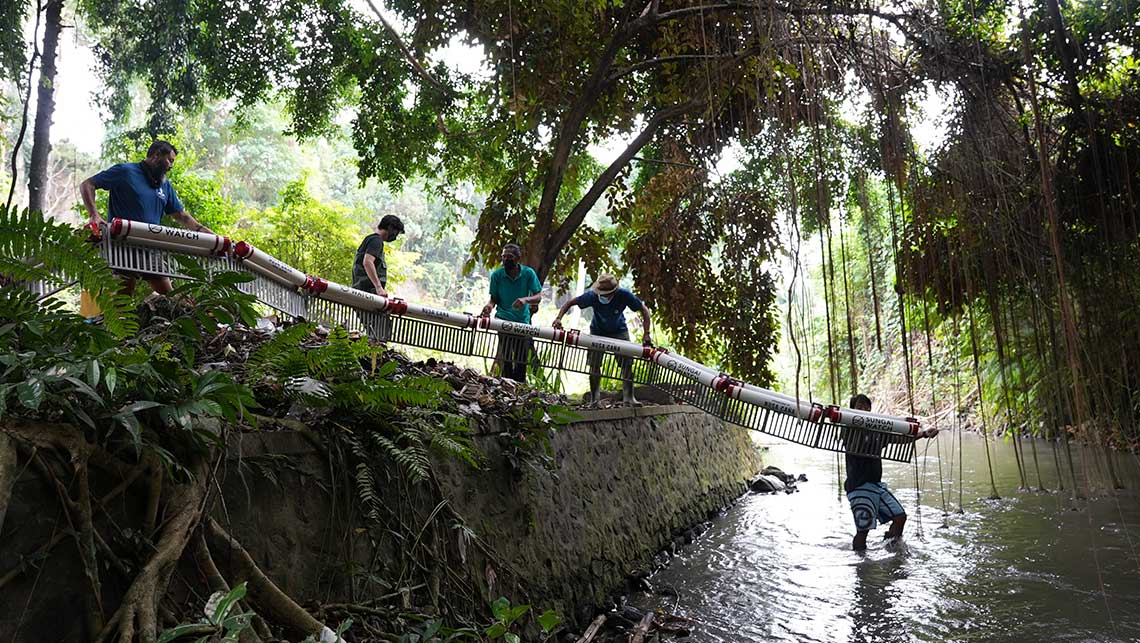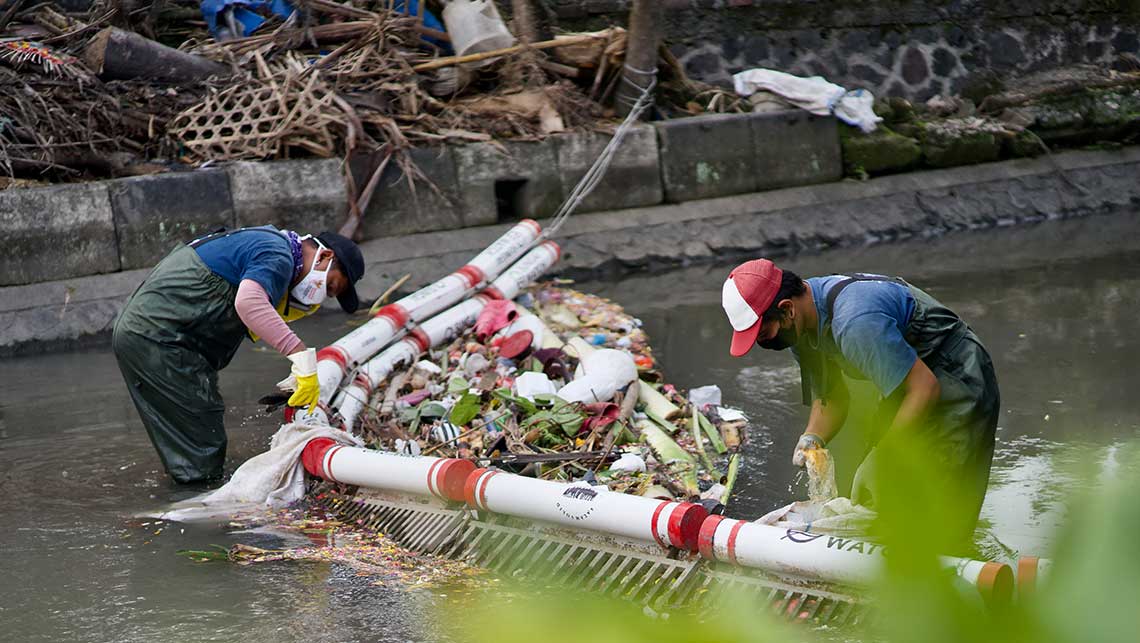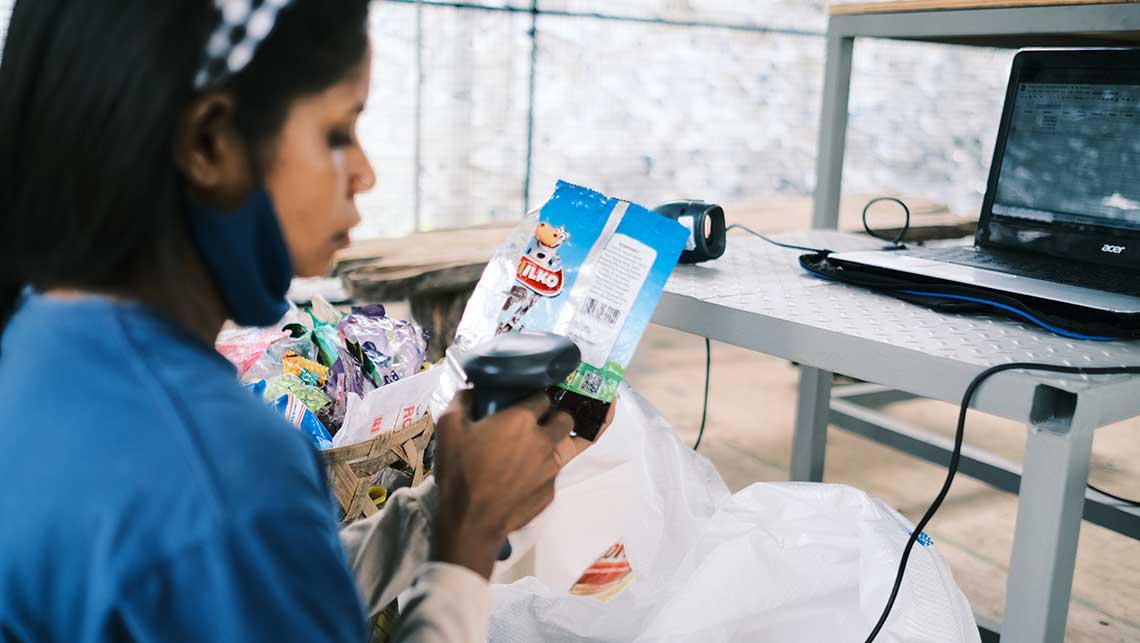Cleaning Bali’s Plastic Pollution Problem, Inside and Out. The Yak spoke to founder Gary Bencheghib.

Over the last few years, Bali has made international headlines as the island of trash. Every rainy season at many of the island’s popular beach locations, the sight of plastic pollution is everywhere. Plastic is clogging the island’s rivers, ricefields, mangroves and irrigation channels. It has become so bad that many surf spots have become unsurfable due to “waves of plastic”. Growing up in Bali over the last 18 years, the slow degradation of Bali has shocked me.
At 14 years old in 2009, with my brother and sister, we said enough. At the time, we did not have much clue as to the real sources of this problem. We set out on a mission to clean beach by beach with a group of school friends and volunteers. But very quickly the next day, plastics would come back and our cleanup had in fact no real impact. We were not addressing the real issue, but simply sweeping the floor in good faith.
Over the years, we have come to realize that 80-90% of plastic pollution in the ocean comes from land-based sources, primarily rivers and streams. And if we want to tackle the real problem and subsequently make a change, we feel rivers are the perfect connection point between life on land and the ocean.

So we began a series of adventures and expeditions down some of the world’s most polluted rivers. Our mission was to bring plastic pollution to front page news and start tackling the sources of the problem.
In the summer of 2017, our lives would change forever. In 2 weeks of paddling down the Citarum river, we experienced the worst of humanity. Mountains of trash burning at every 300m, the river was pitch black and the smells were awful. It got so bad, we got stuck in pools of plastics unable to paddle forward. At times, we had to physically pull our kayaks on the river bank to move forward. We produced a video series about our expedition and overnight our videos went viral.
We gained the attention of Indonesia’s Minister of the Environment. And four months later along with Indonesia’s President Jokowi, we launched the Citarum Harum cleanup, a 7-year program to clean up the river deploying over 7,000 military troops.

SUNGAI WATCH
Since then, we have been piloting solutions to the waste crisis. In October 2020, we launched Sungai Watch, a full-time river cleanup organization to clean waterways starting in Bali. We are on a mission to design simple solutions to stop the flow of plastics from going into our ocean. To date, we have deployed over 150 floating barriers in Bali’s most polluted rivers and 20 barriers in East Java. We currently employ over 100 river warriors and operate 6 facilities to upcycle the trash we collect. We collect over 3 tons of plastic waste daily.
Over our 2 years of work, we have collected over 700,000 kgs of plastics from rivers, mangroves and coastlines. In some rivers that were once filled in plastics, we are seeing fish populations come back and mangroves finally rest and regrow. Nature is so resilient, it can heal if we just let it rest.

We believe our barriers are the quickest and most cost effective way to eradicate plastic pollution by activating communities on land. They are the perfect tool to get communities and governments involved in cleaning our rivers and collecting data to understand how to better improve waste management practices.
Every barrier, every cleanup is an opportunity to collect data to move towards tackling plastic pollution upstream. We process all waste collected in our facilities, where we sort, and audit the plastics collected by type and brand to better understand consumption habits. We are mining waste data and use this data to influence packagers to move away from single-use non-recyclable plastics.
At Sungai Watch, we operate our own R&D center to upcycle every waste stream we collect and turn river plastics into valuable products.

Our next goal is to scale Sungai Watch across Indonesia’s most polluted rivers. We have mapped out 1,000 rivers and we need your help to get there and radically stop plastic pollution before it gets out in our ocean.
Here are ways you can help:
Adopt a River
Adopt a Village (sponsor a facility, a network of 20 barriers, empower 12 Sungai Warriors for a total collection goal of 100+ tons annually)
Furnish your office with recycled design furniture made of Bali’s river plastic that we collect.
IG: @sungaiwatch
www.sungaiwatch.com
gary@makeachange.world
sam@makeachange.world
kelly@makeachange.world